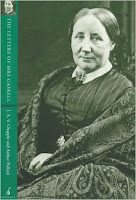For our October pick, we read The Chaperone by Laura Moriarty, a Creative Writing professor at the University of Kansas.
Set in early 1920s Wichita Kansas, the novel’s protagonist Cora Carlisle takes us on a journey not only to New York City, but through her past as she searches for her long lost mother. Abandoned at a young age, Cora finds herself at the Home for Friendless Girls from the age of two to five before being sent westward by train to be adopted out. She is lucky enough to meet the Kaufman’s who take her into their home and love her as their own daughter. Married at seventeen to a respectable lawyer, and a mother of twin boys herself, Cora continues to yearn for her own mother and familial blood relatives. When she learns that fifteen year old Louise Brooks needs a chaperone for the summer to attend a prestigious dance school in New York City, Cora jumps at the chance to return to the city of her birth and learn all the secrets it holds about her past.
As a thirty-six year old chaperone, Cora feels old, dried up, and morally responsible for young Louise Brooks. Cora is as trapped in a sexless marriage with a homosexual husband as she is in the corsets she continues to wear, despite the new, freer fashion styles of the 1920s. Her fateful summer in New York City not only reveals her past and the mother who wishes to know nothing more about her than that she still lives and breathes, Cora also learns that there is much more life to live as she meets and falls in love with a widowed German immigrant and his young daughter.
The predominant theme of the book is the lies we live. Those we tell ourselves, and more importantly, those we hide behind for the respectability of society. Despite the newfound acceptance and love she finds for her husband and his lover, Cora is forced to continue the charade of loving wife and mother, taking her German lover into her home as her “brother” for the fear of what society will think. Of course, at that time in history, Cora’s husband and his lover risked certain death at the hands of a bloody moral mob, while Cora herself risked being jailed for lewd conduct. Society was not as open minded as it appears to be in much of the Western world today. And yet many still choose to live behind well-mannered lies that affect their happiness rather than out themselves as being different from mainstream society, though things are slowly changing, thankfully.
Moriarty’s book was an interesting read, with accurate period details, though I found it read much like an exercise in creative writing. All the requirements for a good novel were there: character development, period, place, plot, etc., but something more was missing, some little magic to bring the characters and their stories to life, jumping off the page so I wouldn’t want to put the book down. Because I did put the book down, frequently and for days and weeks at a time, with little to urge me to pick it up again accept that it was a book club read and so I felt obligated to finish it. Don’t get me wrong, I enjoyed reading about Cora and her story, more so about Louise Brooks, and wished the book was more about Louise and her life than about Cora (but I guess it wouldn’t be called The Chaperone then, huh?). I also very much enjoy reading about the 1920s and the changing attitudes and roles for women occurring at this time. But other than to say it was a pleasant read, I don’t have a lot to recommend about this book.
For those of you unaware, Louise Brooks was a rather famous actress of silent movies and the snippets of her life that were given in Moriarty’s book makes me want to pick up Lulu in Hollywood, Brooks’ own autobiography someday soon, as I expect it will be fascinating reading.
What my fellow book clubbers had to say: Everyone enjoyed reading The Chaperone, and if offered up some interesting discussion about society and the changes that have occurred just in the past 100 years alone, specifically what one generation would and did consider as taboo (i.e. teen pregnancy), a later generation heartily embraces as the norm (consider reality T.V. shows like 16 and Pregnant). I think many of us also felt the inclusion of Louise Brooks to be more of a catalyst for the story than an actual participant in it and were disappointed by this. I was not the only one who preferred to read more about Louise and perhaps less about Cora. The lies we live led us to rather fascinating discourse about lies that were told by neighbours and families in our past, stories particularly told by a certain L who kept me, for one, captivated. And then there were some very deep comments made by another L along the lines of the brevity of life that hit true to home, especially when Cora’s choices were questioned. But let’s face it wouldn’t we all have embraced the love of another man, even if we had to pass him off as our “brother” for the sake of society’s good name, just to have that tiny bit of happiness otherwise denied to us because of circumstances beyond our ability to change? M, after all, said it best: “you go, girl!”
Till next time, happy reading!
L ![]()


